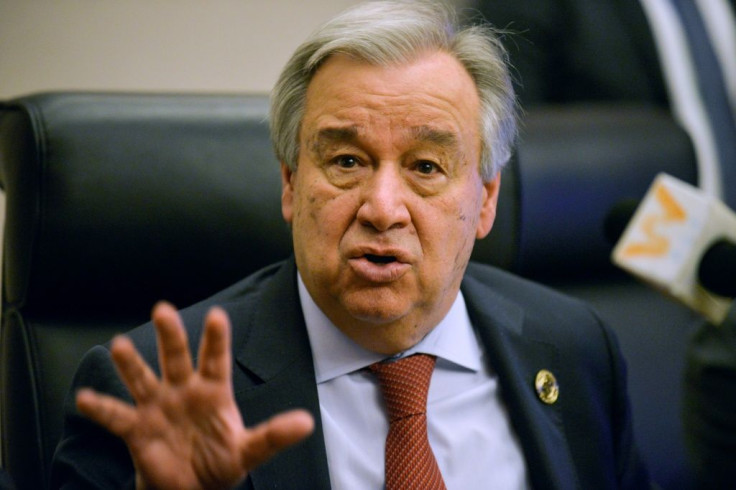UN Chief Attacks Inequality Of Global Institutions Amid COVID-19 Pandemic

United Nations Secretary-General Antonio Guterres said inequality remains a major problem in global institutions, as the international community deals with the impact of the ongoing COVID-19 pandemic.
“The nations that came out on top more than seven decades ago have refused to contemplate the reforms needed to change power relations in international institutions,” Guterres said Saturday during an online lecture for the Nelson Mandela Foundation. “The composition and voting rights in the United Nations Security Council and the boards of the Bretton Woods system are a case in point.”
The Bretton Woods system includes the International Monetary Fund and the World Bank, and was conceived during World War II. The U.N. Security Council consists of five permanent members — China, France, Russia, the United Kingdom, the United States — along with 10 non-permanent members.
“Inequality starts at the top: in global institutions. Addressing inequality must start by reforming them,” Guterres said.
Guterres added that rich countries have “failed to deliver the support needed to help the developing world” amid the pandemic. The World Bank has estimated that 71 million people could be pushed into extreme poverty by the pandemic in 2020, with places such as India and sub-Saharan Africa particularly impacted.
The U.N. has asked for $10.3 billion in aid for poor countries amid the pandemic, with the body only receiving $1.7 billion so far.
The top three countries with the most cases are the U.S., Brazil and India. As of Saturday at 2:55 p.m. ET, there are more than 14 million COVID-19 cases, according to Johns Hopkins University, with the global death toll nearly 598,000.
© Copyright IBTimes 2025. All rights reserved.





















